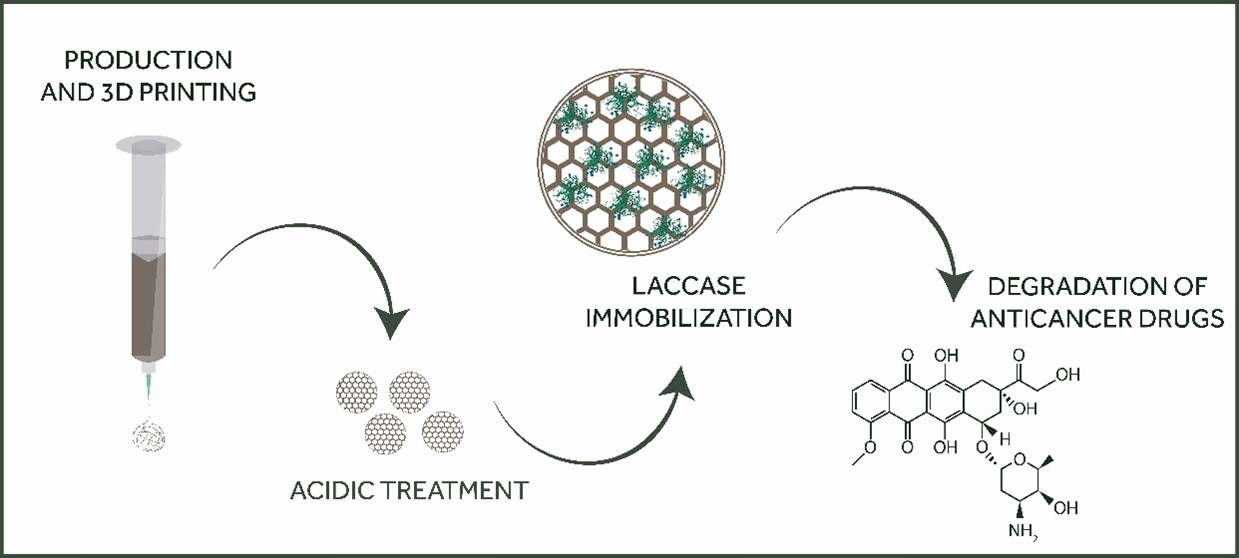Laccase immobilization on ceramic supports for wastewater treatment
Laccase immobilization on 3D honeycomb-shaped ceramic supports aiming at the removal of anticancer drugs in wastewater
Laccase is an enzyme that uses molecular oxygen as a co-substrate for catalysis and produces water as a byproduct. Several studies highlight laccase as a promising enzyme in wastewater treatment. Despite their high potential, free enzymes have disadvantages such as low stability in solution and difficulties in recovery. As a strategy, laccase can be immobilized on inorganic supports, which often enhances its stability, facilitates recovery and reuse, and allows continuously operated reactors with minimal catalyst loss.
3D printing of ceramic pieces in honeycomb format was recently developed and applied as an adsorbent for effluent treatment due to the high surface area and, consequently, more significant mass transfer that this configuration provides.
On the other hand, the presence of anticancer drugs in wastewater is a global reality. These substances have been found in domestic, hospital, and industrial effluents, entering the environment mainly through excretion in feces or urine, posing risks to the environment and human health.

The proposed research project aims to produce a 3D honeycomb-shaped geopolymeric (ceramic) support capable of immobilizing laccase. The proposal’s success will enable the reuse of laccase for the degradation of anticancer drugs, becoming a technology with the potential for implementation as a polishing step. Integrated into the existing conventional process, this would allow the degradation of these emerging pollutants and the generation of treated effluent without risks.
This project is funded by two Brazilian Foundations: Coordination for the Improvement of Higher Education Personnel (CAPES) and Foundation for Research and Innovation Support of the State of Santa Catarina (FAPESC). It is a cooperation between the Federal University of Santa Catarina (Brazil) and FAU (Germany).